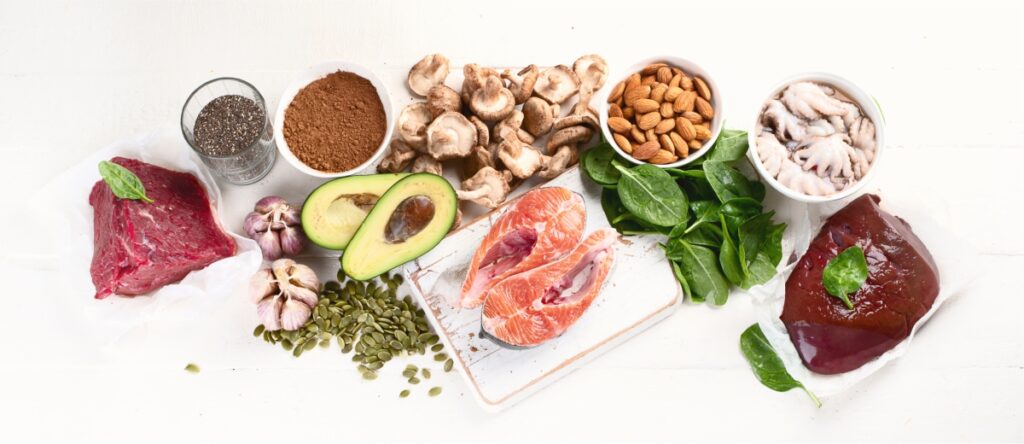Zinc is an essential mineral that is less commonly discussed. A deficiency in zinc, especially in individuals following a vegetarian lifestyle, can lead to various issues. Zinc is involved in approximately 100 enzymes, which are crucial for the body’s biochemical reactions. As a result, it plays a vital role in healthy growth and overall body function. Zinc strengthens the immune system, promotes wound healing, affects our sense of taste and smell, reinforces DNA structure, and supports natural and healthy development during pregnancy, childhood, and adolescence.
Let’s take a look at how we can provide the body’s necessary zinc from food sources if we want to keep supplements as a last resort (although it is recommended). The recommended daily intake of zinc for women over 19 years old is 8 milligrams. For men over 19 years and pregnant women, this amount is increased to 11 milligrams per day. However, the daily intake of zinc should not exceed 40 milligrams.
A zinc deficiency can lead to growth impairments, loss of appetite, and a weakened immune system. In more severe cases, it can result in hair loss, diarrhea, sexual dysfunction, and skin lesions. On the other hand, excessive zinc consumption can cause nausea, vomiting, abdominal cramps, headache, and diarrhea.

Zinc is not found in fruits and vegetables, but it is available in grains, plant-based dairy products, and plant-based proteins. If we want to consume 2 to 4 milligrams of zinc in one meal, we can try the following:
- Wheat sprouts – Two tablespoons
- Pumpkin seeds or pumpkin itself – One-quarter cup
- Cooked beans – Three-quarters of a cup
- Cooked tempeh – Three-quarters of a cup

If you want to consume 1 to 2 milligrams of zinc per meal, you can achieve this by including zinc-rich foods in your diet:
- Plant-based yogurt – three-fourths cup
- Plant-based milk – one cup
- Whole grains with bran – three-fourths cup
- Cooked rice – half a cup
- Mixed nuts, including cashews, almonds, peanuts, or walnuts – one-fourth cup
- Cooked lentils, chickpeas, or beans – three-fourths cup
- Sunflower seeds – one-fourth cup
- Coconut oil – two tablespoons
- Tofu made with magnesium chloride or calcium sulfate – three-fourths cup
- Soy nuts – one-fourth cup
- Tahini – 2 tablespoons
- Soy burger – one patty

Zinc can compete with other minerals for absorption. So, if we’re using supplements, it should be taken separately from the main meals to avoid disruptions in the absorption of various minerals.
Zinc can bind to compounds called “phytates” in some food sources. This can hinder the availability of zinc for absorption. To prevent this, one can consume more soaked grains, sprouts, fermented sources, or a combination of these. Not only does this enhance zinc absorption, but it can also increase the absorption of iron, calcium, and magnesium. Additionally, it reduces gas production in the stomach and facilitates better digestion.
Zinc is more difficult to absorb from plant sources compared to animal sources. If you follow a plant-based diet, you should always be mindful of zinc intake and ensuring it reaches the body adequately. However, with proper dietary planning, it is still possible to meet the body’s zinc requirements without the need for supplements, promoting overall health and an adequate immune system for the body.
Zahra Barani
